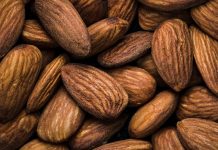
In a groundbreaking study by Harvard scientists, pivotal connections were discovered between diets rich in red and processed meat, refined grains, and sugary beverages, and the heightened risk of heart disease and stroke.
These dietary patterns were found to induce increased levels of inflammation in the body, a known precursor to various cardiovascular diseases.
The study, led by Jun Li, brings forth significant implications for dietary habits and their role in maintaining cardiovascular health.
The Role of Inflammation in Cardiovascular Diseases
Chronic inflammation is recognized as a major factor in the evolution of heart disease and stroke, facilitating the early and advanced stages of atherosclerosis.
Inflammatory biomarkers such as interleukins, chemokines, and adhesion molecules are typically involved.
However, the impact of long-term adherence to proinflammatory diets on heart disease and stroke rates has been relatively underresearched until now.
Unveiling the Dietary Patterns and Their Impact
In this study, over 210,000 participants from the Nurses’ Health Studies I and II, spanning from 1986 with up to 32 years of follow-up, were analyzed. Regular surveys were conducted every four years to assess dietary intake.
The results revealed that dietary patterns with higher inflammatory potential were correlated with elevated rates of heart disease.
When accounting for other risk factors, participants adhering to proinflammatory diets exhibited a 46% higher risk of heart disease and a 28% higher risk of stroke in comparison to those consuming anti-inflammatory diets.
The Dietary Paradigm for Reduced Inflammation
The researchers recommend a dietary paradigm rich in antioxidants and fiber to mitigate inflammation.
The consumption of green leafy and yellow vegetables, whole grains, coffee, tea, and wine is emphasized, while the intake of refined sugars and grains, fried foods, sodas, and processed, red, and organic meat is advised to be limited.
Such modifications are instrumental in reducing the contributions to the proinflammatory dietary index, thereby diminishing the associated risks of cardiovascular diseases.
Implications and Future Directions
This research accentuates the profound implications of dietary choices on inflammation levels and subsequent cardiovascular health.
It provides crucial insights into the preventive strategies against the debilitating effects of heart disease and stroke by focusing on the consumption of anti-inflammatory foods and the restriction of proinflammatory foods.
However, continuous research and public awareness are paramount to foster a broader understanding and adherence to healthier dietary patterns.
Conclusion
The meticulous research conducted by Jun Li and published in the Journal of the American College of Cardiology delineates the intricate relationship between proinflammatory diets and increased risks of cardiovascular diseases.
It underscores the necessity for a transformative approach to dietary habits, emphasizing the consumption of foods rich in antioxidants and fibers, and the limitation of refined and processed foods.
As the global endeavor for optimum health advances, embracing these dietary revelations is indispensable in the collective journey towards a future with reduced incidences of cardiovascular diseases.
The findings of this study serve as a cornerstone, inspiring a renewed focus on dietary modifications as a means to combat the silent inflammatory threat lurking in our dietary choices.
If you care about heart health, please read studies about how eating eggs can help reduce heart disease risk, and herbal supplements could harm your heart rhythm.
For more information about health, please see recent studies about how drinking milk affects risks of heart disease and cancer, and results showing strawberries could help prevent Alzheimer’s disease.
Follow us on Twitter for more articles about this topic.
Copyright © 2023 Scientific Diet. All rights reserved.








